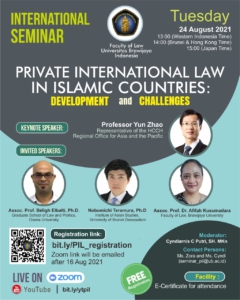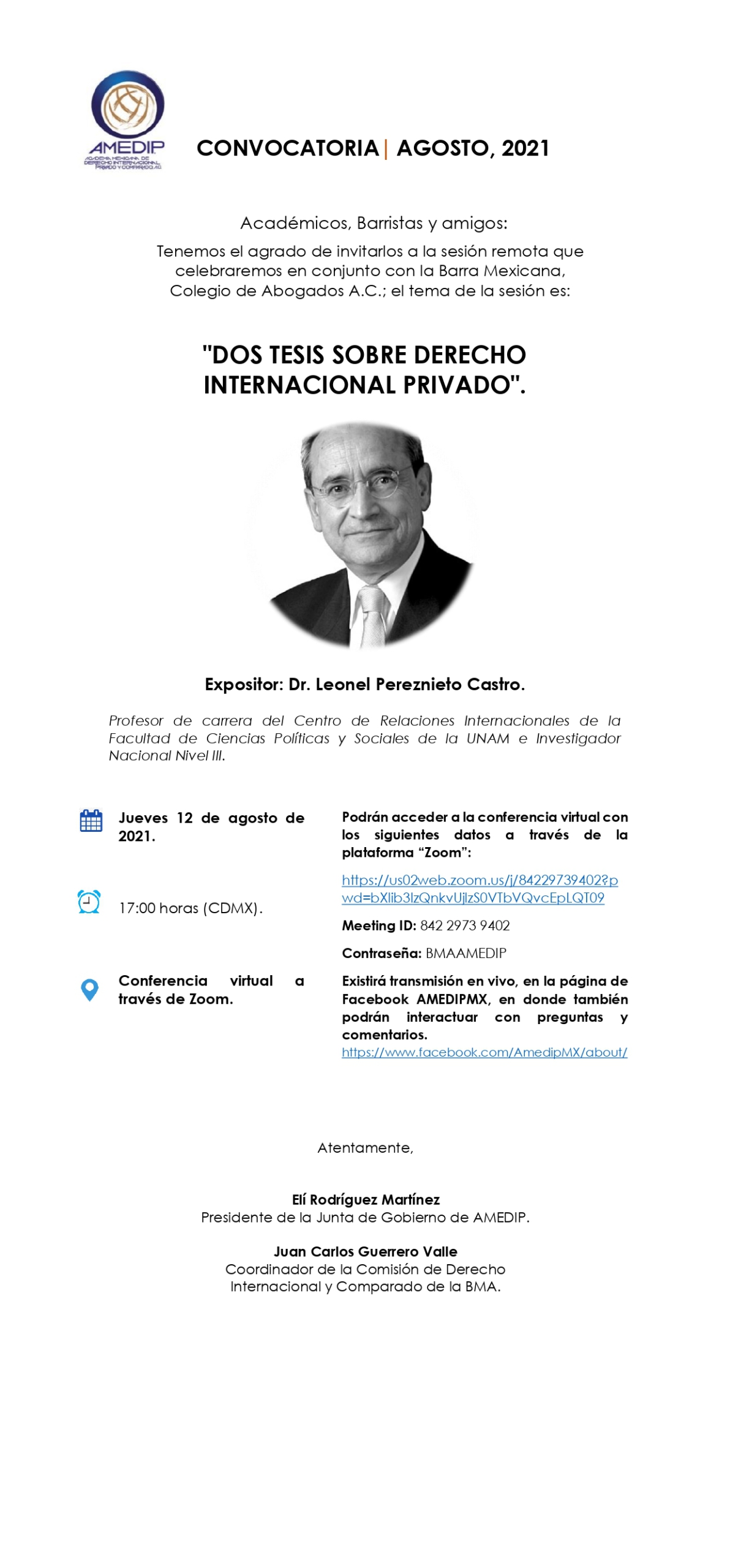Views
Nothing Found
Sorry, no posts matched your criteria
News
Third Issue of 2021 Lloyd’s Maritime and Commercial Law Quarterly
The third issue of 2021 Lloyds’s Maritime and Commercial Law Quarterly was published today. It features one article and a book review on private international law.
M Teo, “A Negotiation-Based Choice of Law Rule for Contractual Formation”
A Briggs, “Book Review – The Private International Law of Authentic Instruments”
Online seminar on Private International Law in Islamic Countries – Developments and Challenges
 The Faculty of Law, Brawijaya University, Indonesia is organizing a one-day international online seminar on Private International Law in Islamic Countries – Developments and Challenges. The main purpose of the seminar is to examine and discuss the current situation of private international law in Islamic countries especially from the point of view of the influence of religion (Sharia/Islamic law) on the regulation of private international relationships.
The Faculty of Law, Brawijaya University, Indonesia is organizing a one-day international online seminar on Private International Law in Islamic Countries – Developments and Challenges. The main purpose of the seminar is to examine and discuss the current situation of private international law in Islamic countries especially from the point of view of the influence of religion (Sharia/Islamic law) on the regulation of private international relationships.
Participation is free but online registration (here) is kindly requested to receive the link to the conference, which will be emailed shortly before the event.
After registering, attendees will receive a confirmation email containing information about joining the webinar. The event will also be live streamed via YouTube (here). E-certificate for attendance will also be issued for attendees to prove that they joined the online seminar.
Details about the forthcoming seminar are as follows:
Date: 24 August 2021
Time: 13:00 (Western Indonesia Time); 14:00 (Brunei & Hong Kong Time); 15:00 (Japan Time)
Program (details can be found here):
- Admittance for Key-note Speaker, Invited Speakers, and Seminar
- Opening Ceremony by the Dean of the Faculty of Law, Brawijaya
- Keynote Speech by Professor Yun Zhao, Representative of the HCCH Regional Office for Asia and the Pacific
- Seminar Presentation (Moderator: Cyndiarnis, SH. MKn)
-
- a. Associate Professor Béligh Elbalti, Ph.D., Graduate School of Law and Politics, Osaka University (The Influence of Islamic Law Principles on the Treatment of International Private Relationships – Family Law as Example)
- b. Nobumichi Teramura, Assistant Professor of the Institute of Asian Studies, and University of Brunei Darussalam (Shariah as the Law Applicable to an International Commercial Contract: Challenges and Opportunities in Australia and Brunei)
- c. Afifah Kusumadara, SH. LL.M. SJD., Faculty of Law, Brawijaya University (The connecting factors to determine the applicable law and the court jurisdiction in Indonesia: The interference of religion)
- Question and Answer
- Photo Session and Closing
- Announcement by the M.C. concerning:
-
- Certificates of Participation
- Seminar materials
Any enquiries should be directed to seminar_pil@ub.ac.id. The organisers are looking forward to having fruitful discussion with and exchange of ideas among all participants.
AMEDIP: Webinar by Professor Leonel Pereznieto regarding two thesis on Private International Law (12 August) and other activities
The Mexican Academy of Private International and Comparative Law (AMEDIP) is holding a webinar on 12 August 2021 at 5:00 pm (Mexico City time – CDT), 12:00 am (CEST time). The topic of the webinar is two thesis on private international law and will be presented by Professor Leonel Pereznieto Castro (in Spanish).
The details of the webinar are:
Link: https://us02web.zoom.us/j/84229739402?pwd=bXlib3IzQnkvUjlzS0VTbVQvcEpLQT09
Meeting ID: 842 2973 9402
Password: BMAAMEDIP
Participation is free of charge. This event will also be streamed live: https://www.facebook.com/AmedipMX

AMEDIP is also giving a series of lectures in a course addressed to judges and judicial officers, among others. This course consists of 100 hours of lectures on Private International Law and is being organized by the Federal Judicial School of Mexico. The program is available here.
As this course deals with a broad range of topics, it will have an impact on the better understanding of Private International Law in the Mexican judicial branch and may lead to better decision making in international cases. For more information, click here.



